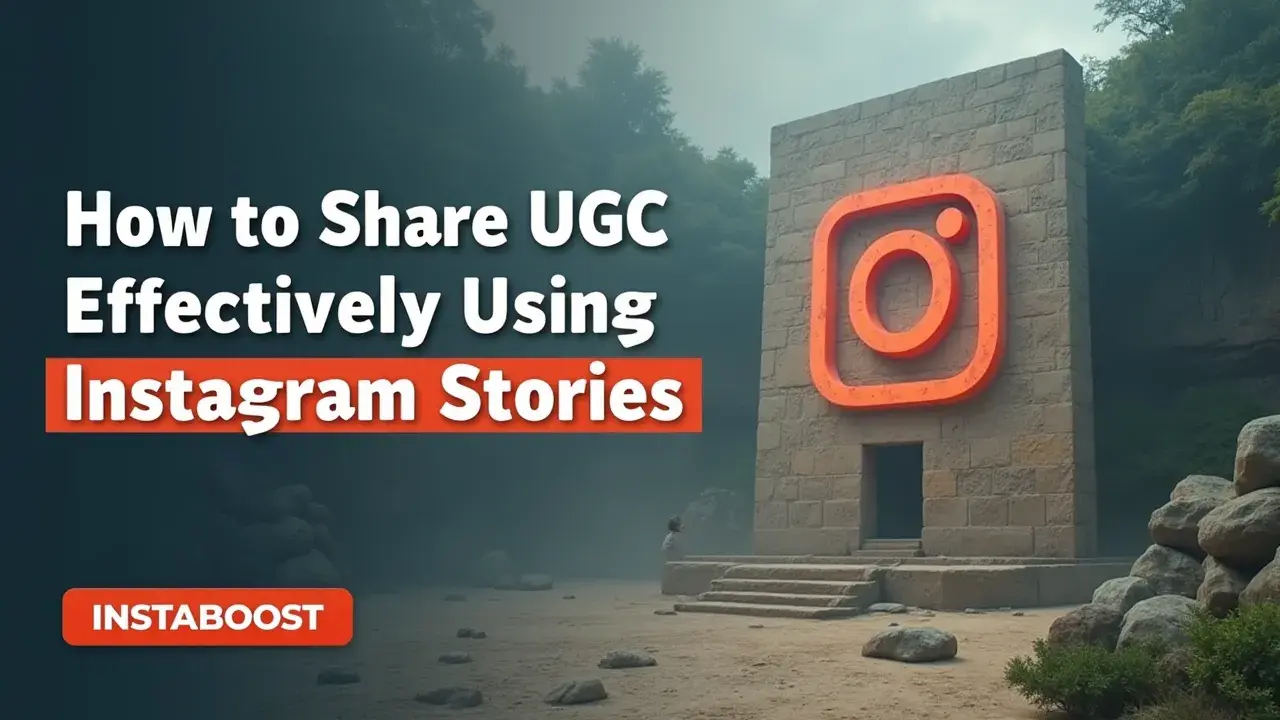How To Share UGC Effectively Using Instagram Stories?
Sharing UGC on Instagram Stories can strengthen authenticity when it aligns with brand voice and audience expectations. Choose posts that reflect real experiences, secure permission, and credit creators clearly to build trust. Add light context with stickers or captions that clarify the value without overshadowing the original content. Measure engagement and iterate on formats and timing to find the smart path that keeps stories relatable and consistently on-brand.
Why Instagram Stories Are the Gold Standard for Sharing UGC
Instagram Stories have turned into a pretty practical way for brands to share what their customers are actually saying and doing, without it feeling forced or staged. Since Stories disappear after a day, there’s less pressure to make everything perfect, and that makes it easier to try out different things or put a spotlight on feedback from your community. It doesn’t take over your main feed, either, so you can keep your overall page tidy while still showing people what’s happening.
What’s nice about Stories is how they can start real conversations. For example, if you share a screenshot of someone’s message or a quick clip of someone using your product, you’re not just promoting yourself – you’re listening, showing that real people are involved. Tools like link stickers or question boxes give people a simple way to respond or ask something back.
There are actually a handful of Instagram tools that work really well for making this whole process easier and a bit more fun. It’s less about uploading more and more, and more about actually thinking about what you’re putting out there. If you mix in user stories or reviews, it feels a lot more grounded than running a big, polished ad campaign. Whether you’re a single person running a shop or part of a bigger team, figuring out how to include your community in what you share changes how people see your brand, even if it’s just one small Story at a time.
There are actually a handful of Instagram tools that work really well for making this whole process easier and a bit more fun. It’s less about uploading more and more, and more about actually thinking about what you’re putting out there. If you mix in user stories or reviews, it feels a lot more grounded than running a big, polished ad campaign. Whether you’re a single person running a shop or part of a bigger team, figuring out how to include your community in what you share changes how people see your brand, even if it’s just one small Story at a time.

Building Trust Through Honest Curation
Building trust on Instagram Stories isn’t some trick – it really depends on doing the basics well, being patient, and sometimes having conversations that aren’t easy. When you share posts from your customers or community, you’re not just filling up your feed; you’re showing what your brand actually stands for. People can usually spot when you’re using generic photos or when something feels off, and that kind of thing doesn’t help anyone. If you want to be seen as trustworthy, it’s important to focus on genuine moments – like someone’s honest review, a casual snapshot from a customer, or a message that feels real.
But picking out these moments isn’t always straightforward. You have to look at what fits, not only with your brand but also with what feels honest, even if it’s not the most flattering thing you’ve ever heard. Sometimes this means sending a quick message to ask if you can share a photo, checking that a review really happened, or editing a story so it makes sense without losing the point of what the customer said in the first place. These small steps matter. They show people that you actually notice and care about what they share with you, and not just when it makes you look good. In the long run, this kind of care is hard to fake, and people pick up on it.
Whether you’re working on your own or you’re running a bigger brand like INSTABOOST, the real trust comes from paying attention to these details, and from being picky about what you post. Over time, this consistent approach can help you attract loyal Instagram followers almost as a byproduct of building genuine relationships. When you do, the people in your community start to feel like part of the story, not just a number in your stats or another line on your to-do list.
Crafting Context, Not Just Collages
When something looks too perfect, it’s easy to suspect there’s more going on behind the scenes. If you’re sharing user posts on Instagram Stories, it helps not to overdo the polish or aim for a feed where everything matches like a magazine spread. Instead, add enough background so people understand why you chose to feature that post – a short note about who created it, what made their Story stand out to you, or what you appreciated about it. These small details make things feel more genuine and give others something real to connect with, beyond the image itself. It also signals that you’re actually paying attention to your community, not just collecting nice photos to boost your brand.
There’s a difference between simply resharing and actually joining the conversation that’s happening. If someone tags your brand in a way that feels fresh or offers honest feedback, it’s worth spending a moment to respond or share your thoughts, instead of just reposting and moving on. This kind of approach helps user posts feel like a meaningful part of your Stories, rather than something you’re adding in to fill space. Even if you’re using a tool like INSTABOOST to find new posts, or just looking for ways to boost your Instagram likes, what seems to matter most is treating each one like it belongs to an ongoing story – something you’re part of, not just managing from a distance. That’s usually how Stories come across as both personal and consistent with what you care about, even if things aren’t always planned out down to the last detail.
What If Your UGC Strategy Falls Flat?
It’s pretty common to wonder if sharing user posts on your Instagram Stories is doing anything. Sometimes you spend time picking out a photo someone tagged you in, share it to your Story, and then… nothing really seems to happen. Not every Story will get tons of replies or reactions, and that’s normal. Most of us are used to seeing polished posts from brands, so when something more ordinary or personal pops up, the response can be quieter. A bump in Story views or a handful of thoughtful replies might be all you notice.
That doesn’t mean it isn’t working; it’s just not always obvious. If you’re seeing people skip past your Stories or mute them, that’s actually useful – it could mean people aren’t connecting with what you’re sharing or they need more context to care about it. Sometimes adding a poll or question sticker can make a difference, because it gives people a way to respond without much effort and helps you understand what they’re looking for. Sharing user posts isn’t a quick way to get more followers overnight, but if you keep paying attention and make small adjustments, you’ll start to see what your followers actually care about. Even if you’re using something like INSTABOOST to plan out your posts – or just looking for a quick boost for video views – what really matters is whether you’re showing people something real.
Measure What Matters: Moving Beyond Vanity Metrics
When you start sharing posts from your community in your Instagram Stories, it’s easy to focus on the obvious numbers – how many people watched, or who tapped on a poll or sticker. But those stats only tell part of the story. What matters more is what happens beyond the numbers: are people sending you messages with real questions about what you offer, or tagging their friends because something you posted made them think of someone? When someone mentions you in their own Stories, or starts using your hashtag more after you highlight a community post, that says a lot about what’s actually resonating.
It can be tricky to track, but these kinds of replies and shares show you the difference between someone glancing at your Story and someone actually caring enough to respond. It’s interesting how these little interactions can expand your post visibility in ways that stats alone don’t always capture. So, when you’re checking your progress, it helps to look at those details too – not only the spikes in reach or impressions, but the moments when someone takes the time to reach out or join in.
Instagram Insights can give you some information, but sometimes just noticing how people are responding day to day is more useful than any chart. If you see a pattern – like more people using your hashtag after you featured their posts – that’s usually a good sign to keep going in that direction. At the end of the day, it’s less about finding the perfect strategy and more about figuring out what feels right for your audience, and paying attention to where those small signs of connection show up.




